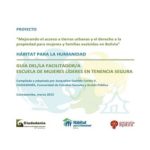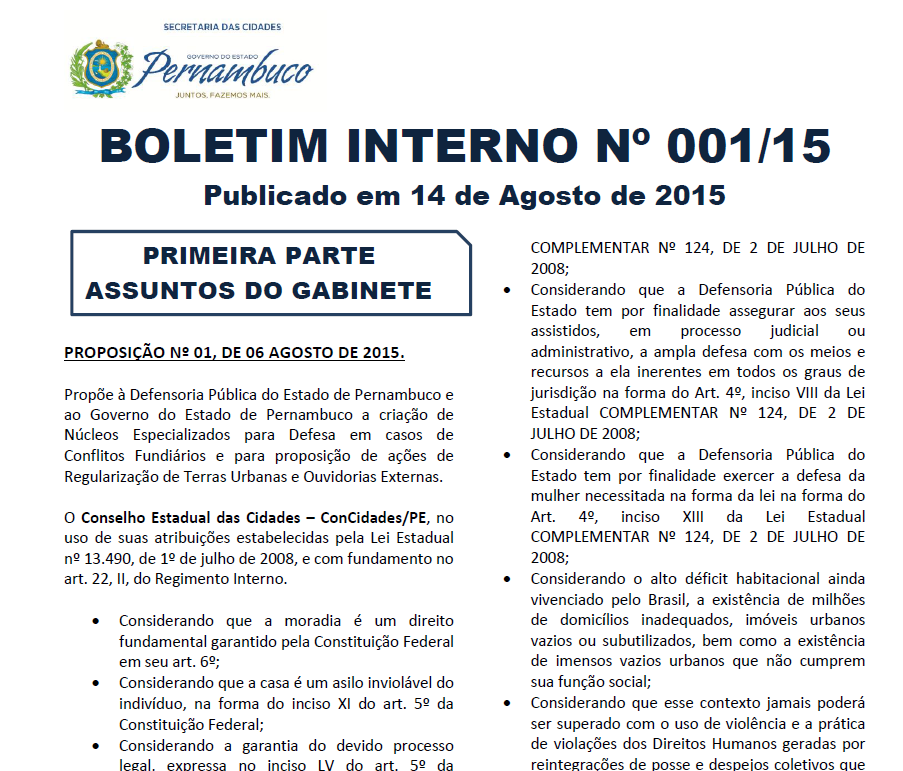About Habitat for Humanity International
Habitat for Humanity International's vision is a world where everyone has a decent place to live. Since 1976, Habitat has helped more than 6.8 million people gain strength, stability and independence through housing, including home construction, rehabilitation and repairs and by increasing access to improved shelter through products and programs. Habitat also advocates to improve access to decent and affordable shelter and offers a variety of housing support services that enable families with limited means to make needed improvements on their homes as their time and resources allow. As a nonprofit Christian housing organization, Habitat works in more than 70 countries and welcomes people of all races, religions and nationalities to partner in its mission.
About Habitat for Humanity International – Latin America and the Caribbean Region (HFHI-LAC)
HFHI through its National Offices or partners is building up an extensive network of allies at both national and local levels in Argentina, Bolivia, Brazil, Chile, Colombia, Costa Rica, Dominican Republic, El Salvador, Guatemala, Guyana, Haiti, Honduras, Mexico, Nicaragua, Paraguay, Peru, and Trinidad and Tobago; carrying out a remarkable work related to land, disaster risk reduction, water and sanitation, community development, housing construction, advocacy, and housing finance issues. Particularly relevant to land the HFHI-LAC Area Office coordinates the GLTN LAC Urban Cluster, a land-focused collective space to activate alliances, mobilize skills, build capacities and engage decision makers, CSO leaders, private sector, academia and communities in innovative land instruments (existing or new) that may develop, accelerate and scale up processes of change and empower the most vulnerable to face the challenges posed by the growth of cities, urbanization, planning, land management, administration and secure tenure. Local and regional land related initiatives are leveraged by ongoing “Solid Ground” HFHI Land Advocacy Global Campaign, and contributing to HABITAT III global process.
Members:
Resources
Displaying 171 - 175 of 320Mejorando el acceso a tierras urbanas y el derecho a la propiedad para mujeres y familias excluidas en Bolivia
Este documento contiene una propuesta que te servirá para conducir una escuela dirigida a fortalecer las capacidades de mujeres que luchan por la tenencia segura de la tierra y la vivienda urbanas.
Shelter Report 2016
Land tenure is one of the great challenges Habitat for Humanity faces in helping families access decent housing. Countless families around the world lack rights to the land on which they live. Just imagine the stress of knowing that any day you might be forced to move because someone else claims ownership of the place you call home.
Política de Prevenção e Mediação de Conflitos, Pernambuco, Brasil
BOLETIM INTERNO Nº 001/15 - Conselho Estadual das Cidades ConCidades/PE, PROPOSIÇÃO Nº 01, DE 06 AGOSTO DE 2015: Propõe  Defensoria Pública do Estado de Pernambuco e ao Governo do Estado de Pernambuco a criação de Núcleos Especializados para Defesa em casos de Conflitos Fundiários e para proposição de ações de Regularização de Terras Urbanas e Ouvidorias Externas. PROPOSIÇÃO Nº 02, DE 06 DE AGOSTO DE 2015: Propõe ao Governo do Estado de Pernambuco através da Secretaria das Cidades instituir a Política Estadual de Prevenção e Mediação de Conflitos Fundiários Urbanos.
Del Notariado e instituye el Colegio Dominicano de Notarios N° 140-2015 – República Dominicana
SUMILLA: De orden público e interés social y tiene por objeto regular el notariado y la función de los notarios. RESUMEN: Tiene por objeto regular el notariado y la función de los notarios. . Los notarios están comprometidos con el fortalecimiento de la seguridad jurídica.
Constitución Política de la República Dominicana
SUMILLA : Derechos Constitucionales y su protección jurídica. Ordenamiento Jurídico del Estado. Define el régimen de los derechos y libertades de los ciudadanos y delimita los poderes del Estado e instituciones de la organización política. RESUMEN :La Constitución Dominicana es el conjunto de principios políticos y promesas contenidas en la manifestación dirigidas al pueblo por los Trinitarios el 16 de enero de 1844.





